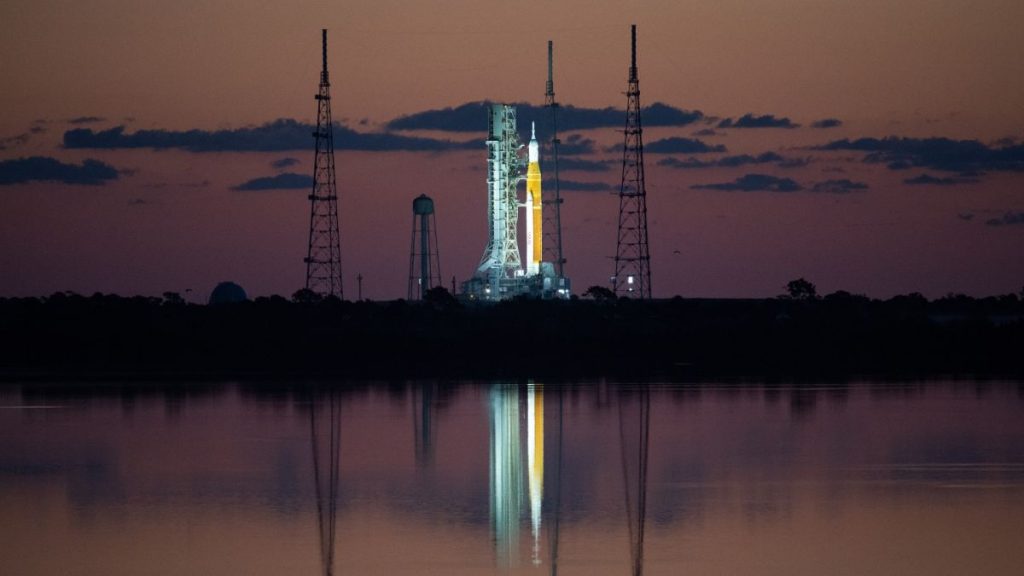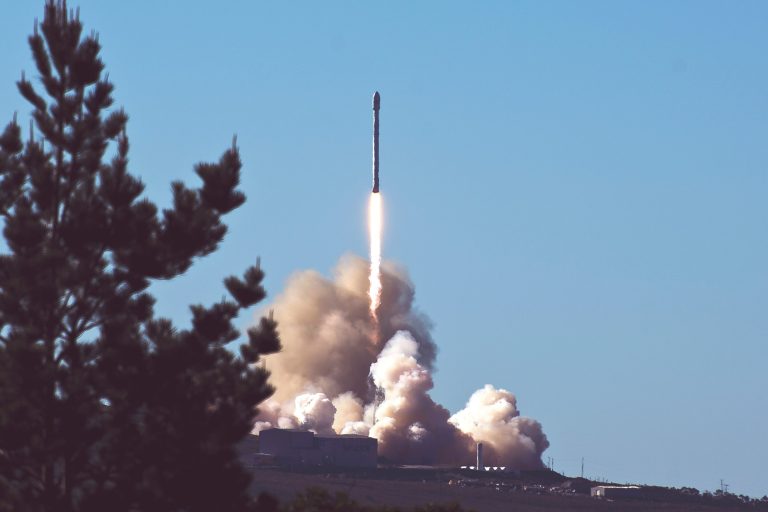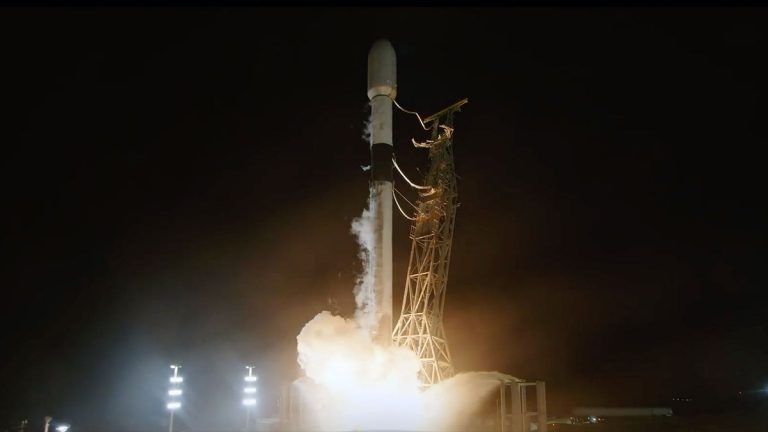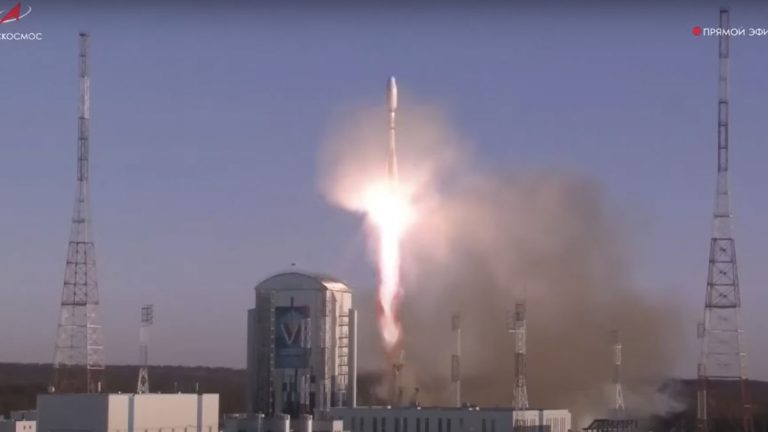
NASA’s massive moon rocket will roll out earlier than planned (Image Credit: Space.com)
NASA will roll out its massive rocket for a flight around the moon earlier than planned.
The agency had been targeting Thursday (Aug. 18) for the Artemis 1 Space Launch System (SLS) rocket to make the slow trek out to Kennedy Space Center’s Launch Complex 39B in advance of blasting off on Aug. 29. But on Monday (Aug. 15), NASA announced (opens in new tab) that the plan changed, with rollout moved up to Tuesday evening (Aug. 16). You can watch coverage of rollout beginning at 3 p.m. EDT (1900 GMT) courtesy of NASA.
“@NASA is targeting as soon as 9 pm EDT of Tuesday, Aug. 16 for rollout of @NASA_SLS ahead of a targeted Aug. 29 #Artemis I launch,” agency officials wrote in a tweet (opens in new tab).
Live updates: NASA’s Artemis 1 moon mission
The Artemis 1 stack will roll to the launch pad atop the Apollo-era Crawler-transporter 2. While the crawler and rocket will only travel 4 miles (6.4 kilometers), the journey will take eight to 12 hours, according to previous NASA statements.
This week’s rollout will mark the rocket’s third parade from the Vehicle Assembly Building (VAB) out to the launch pad. Previous rollouts, in March and June, preceded attempts at what NASA calls a wet dress rehearsal, during which the rocket is fueled and personnel run through all the steps leading up to launch.
Both of those visits ended with the Artemis 1 stack, consisting of the SLS rocket and the Orion capsule, retracing its journey to the massive VAB for adjustments and prep work.
We’re really on a roll today!! 👏 Crawler-transporter 2 has begun the roll to the Vehicle Assembly Building, in what could be called the first motion toward launching Artemis I! pic.twitter.com/Bwxtk2p2NxAugust 15, 2022
This time, if all goes well, the rocket will make a much more dramatic departure from the launch pad, blasting off on an uncrewed test mission around the moon that NASA hopes will pave the way for current astronauts to set foot on the moon. Launch could occur as early as Aug. 29; additional launch opportunities are available on Sept. 2 and Sept. 5.
Depending on the launch date, the Artemis 1 mission will last between 39 and 42 days, agency officials have said. During that time, NASA will be able to evaluate how the Orion capsule fares in space before its first crewed flight, Artemis 2, which is scheduled to launch in 2024.
Email Meghan Bartels at mbartels@space.com or follow her on Twitter @meghanbartels. Follow us on Twitter @Spacedotcom and on Facebook.








